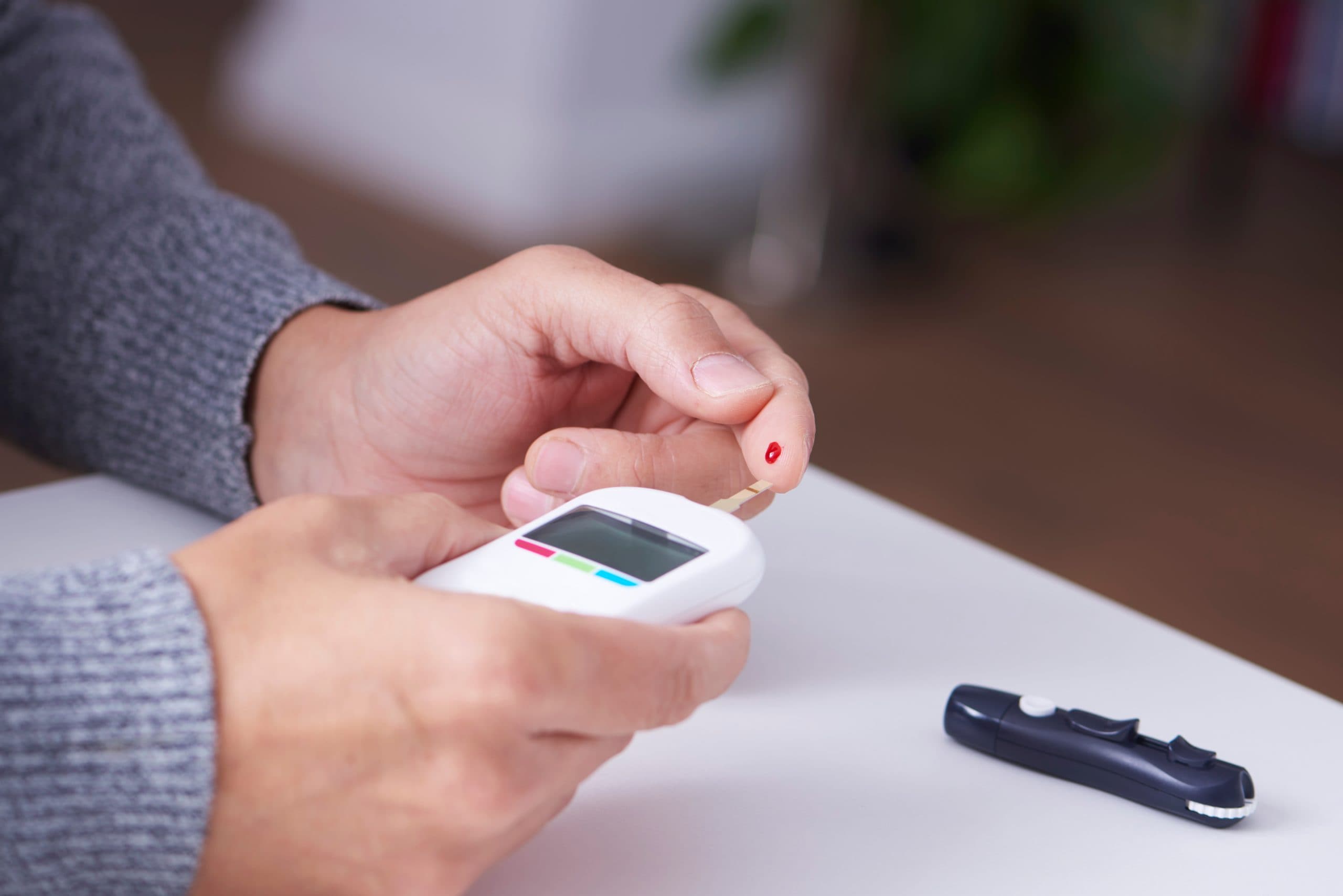Making sense of blood sugar tests

Getting your blood sugar tested is usually the first step toward diagnosing diabetes. As a person with diabetes (PWD), it’s likely you had a hemoglobin A1C (HbA1c) test administered during a checkup or in response to symptoms of diabetes or prediabetes. But diagnosis isn’t the only time you need to test your blood sugar. For one, PWDs are used to checking their blood sugar themselves daily to keep tabs on their sugar levels.
If using a continuous glucose monitor (CGM), PWDs may also need to test a blood sugar from time to time if their CGM isn’t working or if their symptoms don’t align with their sensor glucose values. Healthcare providers also use a few more tests to provide better, more informed care throughout your treatment journey as well as:
- Keep track of how other factors not related to diabetes (i.e. stress or other illnesses) are impacting your treatment
- Track how new medications impact your long-term blood sugar levels
- Set treatment goals
- Update changes to your treatment plan
Here’s some helpful information about the various blood sugar tests you might encounter besides the HbA1c test, including the fasting glucose test and the glucose tolerance test.

Blood sugar tests to complement HbA1c
The HbA1c blood sugar test measures the percentage of red blood cells that have sugar-coated hemoglobin. Your hemoglobin can become crusted in sugar when blood sugar levels have been high over an extended period of time. Everyone has a certain amount of sugar attached to their hemoglobin but people with diabetes have more than is considered normal. An HbA1c test result below 5.7% is considered to be within normal limits while an A1C of 5.7% to 6.4% indicates prediabetes. If you record an HbA1c result of 6.5% or higher on two consecutive tests, it’s possible you will be diagnosed with diabetes. However, there are occasions when more testing is needed such as when there are inconsistent HbA1c test results, an uncommon form of hemoglobin that interferes with results, or a condition (such as pregnancy) that prevents accurate results. Here are the tests you can expect if your healthcare providers need more information about your blood sugar:
- Fasting glucose test: To take this test, you cannot eat overnight so your blood sugar is at fasting levels — meaning it’s as low as it gets between meals. Results below 99 mg/dL are considered to be within normal limits while results higher than 126 mg/dL may indicate diabetes. Results in the middle of that range indicate prediabetes.
- Random blood sugar test: This test does exactly what the name implies — tests your blood sugar at the time you’re tested with no preparation needed on your part. Because these tests are truly random, only results with very high blood sugar values (>200 mg/dL) are considered indicative of diabetes.
-
Glucose tolerance test: In this test, your healthcare provider will have you drink a sugary liquid after fasting overnight. They’ll first draw your blood before you drink to determine a baseline. Then, they’ll check it again each hour afterward for three hours.
Screening tests for gestational diabetes
If you are pregnant, you may be screened for gestational diabetes. There are a couple of blood sugar tests for that purpose, a glucose challenge test (GCT) and a glucose tolerance test (GTT).

Between the 24th and 28th weeks of pregnancy, healthcare providers will administer a glucose challenge test. This test is similar to a glucose tolerance test, except you won’t need to fast. Healthcare providers simply have you drink a sugary liquid and then measure your blood sugar an hour later. If your test results are higher than 140 mg/dL, they will recommend a glucose tolerance test to confirm the results.
Improving your blood sugar test results
No one likes taking tests, even when you know all the answers. In the case of blood sugar tests, even more so. But they are valuable ways of keeping track of your diabetes self-management. Knowledge is power and there’s no way to know if something isn’t working unless you check up on it. Talk to your healthcare providers about ways to help improve your results if you’re unsatisfied with how treatment is progressing. They can help you find programs that can help you make lifestyle changes that may lower your blood sugar test results.
You can also check out the resources available from online diabetes communities along with Medtronic’s own live or on-demand webinars covering everything from carb counting to tips on how to use insulin pumps. Either way, with a little exercise, better nutrition, and a good plan put together with your healthcare team, you can get through tests like the fasting glucose test and the glucose tolerance test with flying colors.



